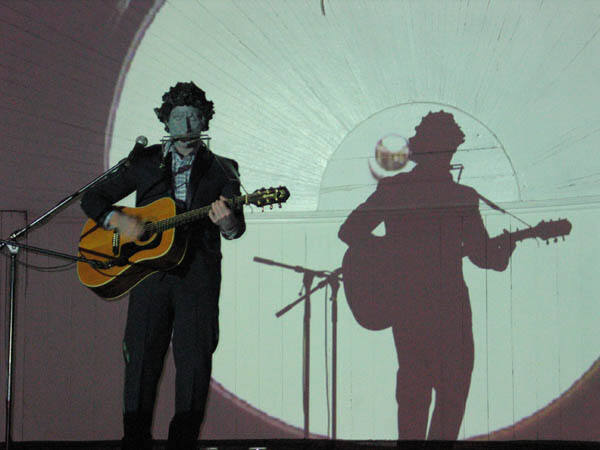Übergordnete Werke und Veranstaltungen
Screening Common Property
Media
THE FILM PROGRAMME OF THE 6.TH WERKLEITZ BIENNALE
The film programmes of the 6th Werkleitz Biennale approach the theme of common property from a number of historical and present-day perspectives. With direct as well as associative references, the programme follows the social debates surrounding the question as to how common property can be conceived and lived. In what respect is the individual and collective scope for action restricted by the centralised administration and marketing of knowledge, by the privatisation of resources, and the atomisation of the public? In the course of history, the establishment of communities has repeatedly been appropriated ideologically and by the state; today, the new paradigms of security and control follow conceptions of conformist humans that are no less rigid. Against this background we present processes of cultural acquisition and subversive strategies that are directed against global capitalistic structures, repressive urban orders and patterns of representation in the media.
The individual films and short film programmes are as varied in terms of content, as they are in regard to the shown formats and genres: experimental films and video art, documentary and feature films, educational films and commercials, animations and music clips. Spanning a period from 1924 to 2004, classics will be screened, i.a. by Slatan Dudow, Hans Richter, Jean Rouch and Alain Resnais, as well as works by young filmmakers and video artists that have rarely been shown in Germany.
After the screening of the German version of the two films 'A bientôt j'espère' (1968) by Chris Marker and 'Classe de lutte' (1969) by Groupe Medvedkine, Inger Servolin will speak about film as a collective production process. Using examples of films shot by workers' collectives, Karin Frizsche will discuss the notion of community in the GDR. With our selection of long feature and documentary films we draw attention to the concrete circumstances of life and the confrontation of the subject with the altered conditions in postindustrial societies: How are the entrenched debates surrounding research in genetic engineering treated in everyday political life? What happens to the sense of belonging to a national community when second-generation family members returning from exile no longer speak the common native language? How is the world of shopping and business centres, increasingly copied all over the world, mirrored in the identities of those working there? How can free spaces created on one's own initiative be defended against the existing legal and ownership relationships?
Like with the other sections of the biennial, the concern of the film programmes of the 6th Werkleitz Biennale is to make relations and contexts transparent, to incite controversial discussions and to place them in relation to the possibilities of artistic, filmic and activist practices. A.C., F.W., P.Z.











